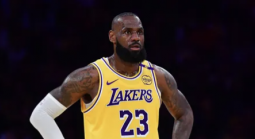Top 10 Biggest Impacts on Internet Gambling in 2008

Here we are heading into 2009 and it is time to reflect upon 2008 and what were the biggest impacts affecting the online gambling industry. Unfortunately, this was a pretty easy list to create.
While most of the news was bad, some was quite promising. The fact that politicians the likes of Barney Frank have worked feverishly to get bills passed in hopes of overturning current legislation banning online gambling was certainly a bright note on the year. Oddly enough, so too was the US Treasury Department's releasing of policy enforcement related to the Unlawful Internet Gaming Enforcement Act. As things turned out, they were pretty relaxed.
10. The World Series of Poker Final Table Delayed Until November - This one had everyone talking. They either liked the idea or hated it. In the end, the impact probably wasn't all that great....at least in terms of affecting play. Aside from a lingering arrest warrant for one of the "November Nine" (as they were often called), there wasn't a whole lot of stuff that could have gone wrong in between the time gap.
Get used to the delay folks and we probably won't be hearing much complaining next year. The 2008 final table outperformed the 2007 final table with ratings up 46 percent over the year before. On Nov. 11, approximately 2.4 million viewers (representing a Nielsen rating of 1.9) tuned in to watch the November Nine battle it out for $9.1 million and a gold bracelet. Nobody will argue this was a bad decision now.
9. The Republicans Fire One Last Shot - Just when it appeared as if the Republican party would remove from its platform ridiculous language opposing legalization of online gambling, a few of the diehards insisted such a directive be added. The impact was nominal in the end since the Republican administration was voted out of office.

8. The Economic Downturn - Online gambling was one of the few industries impacted positively by the current economic crisis though there was hardly reason to celebrate. The reality is that the industry was already crushed by two years of prosecutions and efforts to stymie its very existence.
Vegas, Macau and other land-based gambling playgrounds were shown not to be recession-proof as previously believed. But people will still gamble, they just might not travel to do so, especially when they can play in their PJs in the comfort of their own living rooms.
7. The Fall of Bodog - While Bodog is still online, this once proud online gambling website that was nothing more than a blip on the radar until Gamlbing911.com began promoting them, witnessed quite the decline in 2008. First, the company's colorful founder, Calvin Ayre, retired and started spending most of his time in Cuba. Then the US went after Bodog's money. A federal investigation has resulted in a series of subpoenas. Bodog also lost its domain name the year before and has only slightly recovered from that debacle. The folks who won that trademark infringement case, however, are looking to recover a significant chunk of the monies seized by US law enforcement. Meanwhile, Calvin Ayre's name is among the most searched for by those with ".gov" domain extensions on the Gambling911.com website. We are not hiding him!
6. The US Treasury Department Policy Enforcement of UIGEA - You know what - it wasn't so bad after all. It took nearly two years for the US Treasury Department to figure out how they would enforce a virtually impossible to enforce act that tries to make online gambling illegal. In the end, players would not be breaking any laws, payouts were exempt (as were checks) and the banks were given another one year grace period to develop their monitoring efforts. Of course, this is a billion dollar unfunded mandate...money the banks we now know do not have....unless of course the US Government wants to lend it to them.
5. PartyGaming Founder Anurag Dikshit Pleas Guilty - Not that he was indicted or charged with any crime, Dikshit felt he might be down the road and that was enough to offer a handout of $300 million to the US Government (probably the IRS in the end). He is also potentially looking at up to two years in prison. For the online poker community, this was a huge blow as the sector has long argued poker is a game of skill and should be exempt from any laws seemingly designed to go after illegal sports betting. Dikshit plead guilty under that very wire act however.

4. Barack Obama Gets Elected as the First Black President of the United States - What a great moment in history. His message of "change" truly resonated with those living in the US and the world over for that matter. There is much optimism in the online gambling sector. President-Elect Obama himself is a known poker player. Vice President-Elect Joe Biden's son lobbied on behalf of PartyGaming. These are good signs. It remains to be seen whether online gambling prohibition will ultimately be abolished during Obama's first term in office. Powerful Democrats the likes of Barney Frank are working on behalf of the industry and Obama in the White House could help to accelerate things.
3. Barney Frank Pushing Legislation to Legalize Online Gambling - President Bill Clinton's former speechwriter Josh Gottheimer noted in his book, Ripples of Hope: Great American Civil Rights Speeches, that Frank is one of the nation's "brightest and most energetic defenders of civil rights issues". In 2007 Frank became the chairman of the House Financial Services Committee which oversees housing and banking industries. The New York Times called Frank one of the most powerful members of Congress noting "his ability to build bridges across party lines to pass legislation"
Congressman Frank has become a household name thanks to the current economic, banking and real estate crisis. Frank is doing everything in his power to help alleviate some of the suffering...a near impossible feat but at least he's trying. Getting online gambling legalized may be the easiest objective on his busy platform. The later is a priority despite other challenges. Barney is a workhorse regardless of whatever faults he might have (most of us have watched the heated exchange between Congressman Frank and Fox News Bill O'Reilly).
Frank has also partnered with Ron Paul - another great story of 2008 - in support of online gambling rights. In 2006, both strongly opposed H.R. 4777, the Internet Gambling Prohibition and Enforcement Act, and H.R. 4411, the Goodlatte-Leach Internet Gambling Prohibition Act. To restore online gambling rights, in 2007 Frank sponsored H.R. 2046, the Internet Gambling Regulation and Enforcement Act. This bill would have established licensing and regulation of online gaming sites. It provided for age verification and protections for compulsive gamblers. In 2008, he and Paul introduced H.R. 5767, the Payment Systems Protection Act, a bill that sought to place a moratorium on enforcement of the Unlawful Internet Gambling Enforcement Act while the U.S. Treasury Department and the Federal Reserve defined "unlawful Internet gambling". As a result of these efforts, Frank (who does not gamble) has become a hero to poker players and online gamblers, including many Republicans.
" I also think with the Obama administration you wouldn't see these bad regulations," Frank told Gambling911.com prior to Obama's win.
2. Absolute Poker/UltimateBet Cheating Scandal - It was the scandal that wouldn't go away. The Absolute Poker/UltimateBet insider cheating scandal culminated in a much ballyhooed 60 Minutes piece that didn't do much to kill Absolute's business. The company has paid out those they feel could have been affected, they've cooperated in an audit that uncovered some of the culprits behind the cheating (most notably World Series of Poker winner Russ Hamilton). Yet in the end the online poker community has had a tough time accepting Absolute Poker's decision to not release names of some individuals involved. They claim it was the only way to learn how the cheating occurred and to ensure that it never happens again.
The company can't seem to get any breaks as they close out 2008. In December, revelations surfaced that its own professional poker player spokesperson, Phil Hellmuth, won a bad hand while playing on the new online poker platform. Most agree it was probably nothing more than a software glitch, but the past scandal has helped to foster many a conspiracy theory.
On a bright note, none of this negative news appears to have impacted business for North America's third largest online poker venture. Unlike a few of their competitors (most notably Bodog and PartyPoker), Absolute has lost little if any market share.
Their new CFO, Paul Liggett, should help to right the ship in 2009 from a PR perspective.
1. Kentucky Goes After Online Gambling Domain Names - To say the state of Kentucky's efforts to seize some 140 online gambling domain names was the biggest story affecting the multi-billion dollar industry in 2008 would be quite the understatement. In fact, this would qualify as one of the biggest industry stories of the past 10 years.
The sun shines bright in the old Kentucky home, 'Tis summer, the people are gay. Well, actually that's still a crime in Kentucky. Gambling is NOT! But in an effort to protect the commonwealth's own horse racing industry, Governor Steve Beshear went after online gambling with reckless abandonment. He bypassed the state legislature to do so, opting instead to hire an outside Chicago firm to do the dirty work. A circuit court judge found in favor of the state and an appeal by The Interactive Media Entertainment & Gaming Association has stopped any domain seizures from taking place for the time being.
But God bless Kentucky for waking the sector up.
And best wishes for a wonderful 2009 from your friends at Gambling911.com. Let's hope for a good one.
Christopher Costigan, Gambling911.com Publisher













